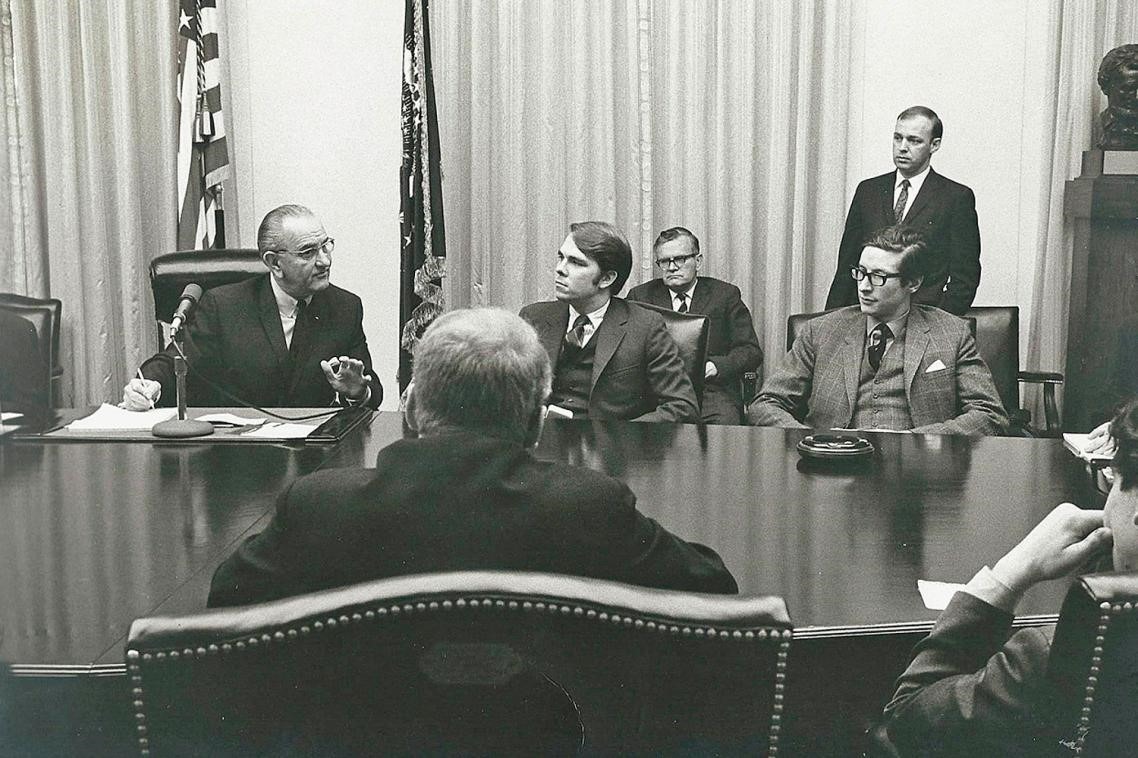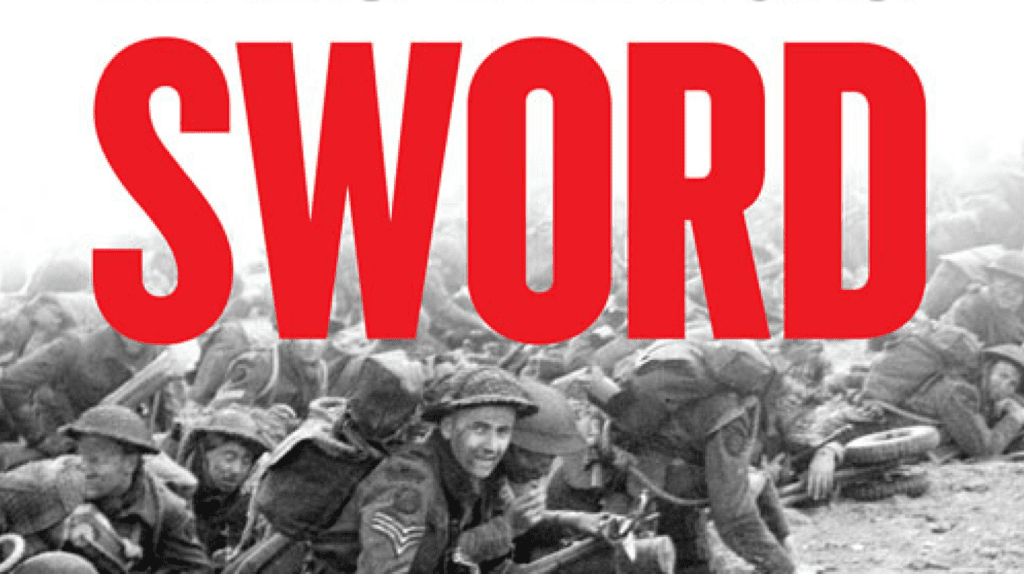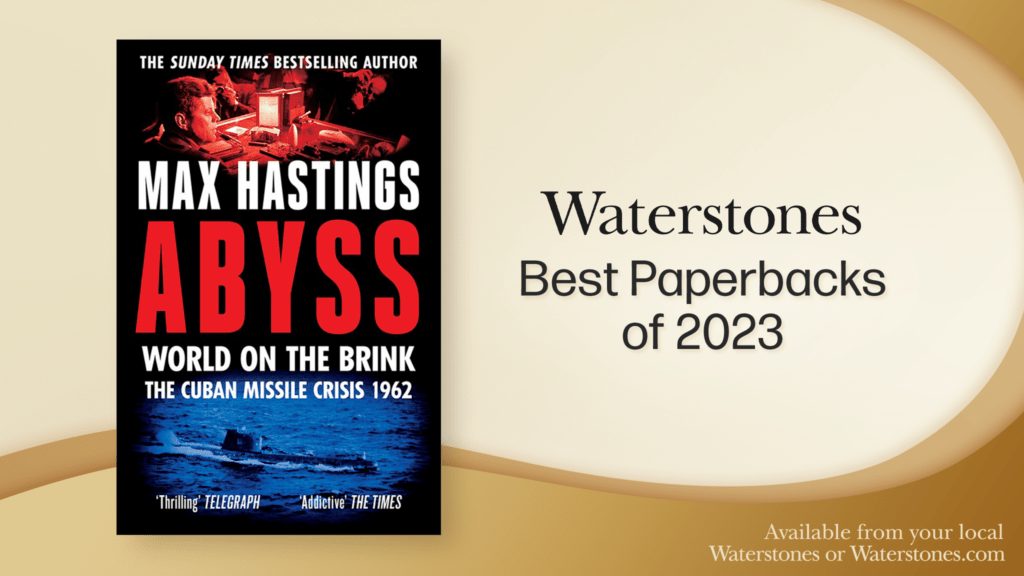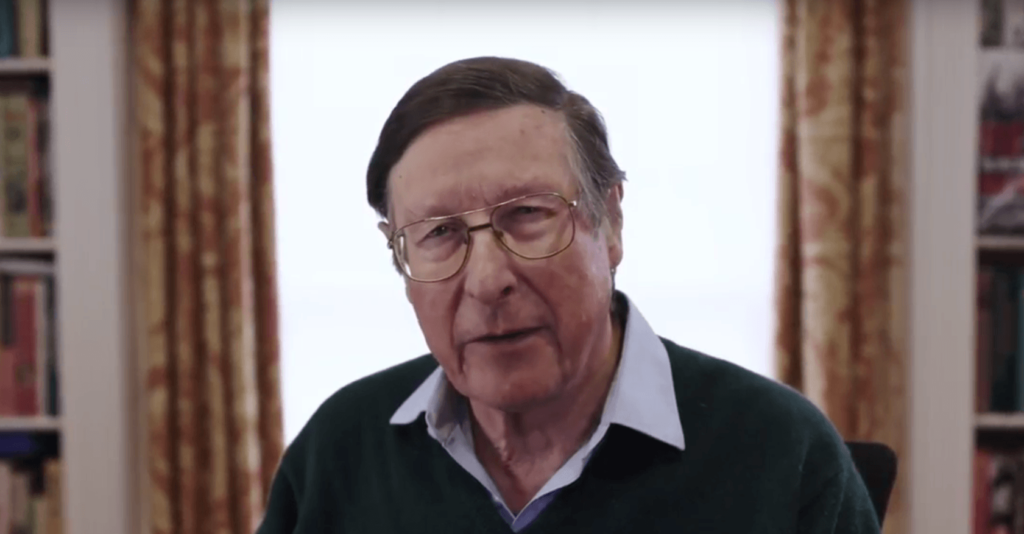In his new book, Max Hastings recalls the brutal warfare he witnessed during the Vietnam War. In this extract, he recounts the resistance to it in America.
Two parallel Vietnam Wars evolved in 1967: the first was, of course, America’s intensifying battlefield struggle; the second was the ever-fiercer fight against it back home. CBS TV began broadcasting The Smothers Brothers Comedy Hour, a show that became the surprise hit of the season. Although its satirical sallies were soft stuff by 21st-century standards, a row exploded about whether the anti-war folk singer Pete Seeger should be allowed a guest appearance. He finally delivered a rousing rendering of a number in which the punchlines ran “We’re waist-deep in the big muddy/ But the big fool says to push on.” The song was supposedly about an army platoon exercising in 1941 Louisiana, but nary a single viewer doubted, or was intended to doubt, that it really addressed Vietnam and the leadership of Lyndon Johnson.
That spring, domestic resistance to America’s commitment burst forth to become a mass movement, entwined with, though certainly not confined to, the hippy movement and the new metro-generation’s embrace of drugs and liberal sex. Hairy hippy chieftain Jerry Rubin said: “There’s a war going on between young people and the old people who run this country.” A galaxy of stars and celebrities came out against the war, headed by most of the Kennedys and their intimates such as JK Galbraith and Arthur Schlesinger, and also including Joan Baez and Bob Dylan, Norman Mailer and Jane Fonda, paediatrician Dr Benjamin Spock, British philosopher Bertrand Russell, many artists, academics and leftists on both sides of the Atlantic, together with leaders of the black civil rights movement.
Month by month, demonstrations grew in scale until by October 50,000 protesters rallied in Washington, where 10,000 troops were deployed to protect the Pentagon. Senator Edward Kennedy declared: “No great nation can long claim to have won freedom and democracy for another people if . . . destruction of their land and way of life was the hallmark of the effort.”
Nuance was a significant casualty of the argument. Supporters of the war saw themselves as patriots as well as foes of communism. Carl McIntire, founder of the Bible Presbyterian Church, declared the struggle “a righteous and holy cause”, while evangelist Billy James Hargis argued that Americans were fighting for “freedom . . . security and protection of the United States”. The editors of Christianity Today, an evangelical weekly, urged more bombing.
Meanwhile, at the opposite end of the spectrum the anti-war movement became increasingly frenzied. Many Americans familiar with Vietnam deplored the manner in which their nation was conducting the fight. They also, however, acknowledged communist brutality and the totalitarian character of the Hanoi regime, and thus recoiled from protesters who made a moral leap beyond chants about the iniquity of their own president — “Hey, hey, LBJ, how many kids have you killed today?” — to assert the goodness of the enemy.
The consequences of the rising tide of domestic turbulence were profound, especially on college campuses. Since the war’s beginnings, while in the field some soldiers, sailors and airmen had bungled and many had shown themselves insensitive, their pervasive spirit reflected commitment to an unwelcome but necessary duty. From 1968 onwards, however, this changed. As veterans went home they were replaced by new men, many infected by a cult of dissent, drugs — and disbelief.
Robert Holcombe was a black New Yorker who evaded the draft for a year and eventually took the military oath in handcuffs. The son of schoolteachers, he was an avowed rebel, stalwart of sit-ins and teach-ins, who devoured Mao’s Little Red Book and was expelled from the University of Tennessee for participating in a riot. He said later: “I had read tons of books including literature from Cuba, China, Hanoi itself. Wars are only fought over property, really. As I saw it, we were after a foothold in a small country in the Orient with rubber plantations, rice, timber and possibly oil. And the people. A cheap source of labor.” Yet at the end of his long dodgem game with authority, he found himself unwillingly serving the US Army in Vietnam.
Holcombe, though in 1967 he had not yet got near the war, was an extreme example of what was coming. A study of soldiers proceeding to Vietnam in that year showed one in five already using marijuana, a proportion that three years later would rise to half. The in-country percentage of known pot-smokers grew from one quarter in 1967 to two thirds in 1971. A host of men read with disbelief about the virulence of the protests back in the States, in newspapers from home delivered to paddies or elephant grass.
Some American warriors came later to believe — indeed, for ever after to insist — that rather than losing the war in the field, they had been betrayed by moral weakness at home, the “stab in the back”. Texan Capt John McNamara wrote from Danang, observing that he and most of his kind were “hurt by evidences of civil dissension [in the US] . . . I saw a VC-mined civilian bus the other day: women, kids, animals splashed all over the place.” Yet he acknowledged his own confusion: “We don’t do that. The larger question is, did I and my government and by inference western civilisation create the conditions that bred the Asian terrorist?” Yet even the communists were bemused by the excesses of the US anti-war movement. Radical activist Tom Hayden, who later married Jane Fonda, visited Hanoi and became its passionate advocate. One of the few comic moments in the jungle captivity of Doug Ramsey, a State Department foreign service officer taken prisoner by the Vietcong in January 1966, took place when Hayden’s name was mentioned during an interrogation. The prisoner asked his captors their opinion of him. A cadre replied coldly: “We admire his ideology, but despise him as a person. How can you respect a man who betrays his own country?”
It remains debatable how far American domestic opposition to the war was influenced by principle, how far by conscription for military service — the draft — which gave some young men an overriding personal motive to crusade against a conflict that might waste two years of their youth, at worst forfeit their lives. Statistics show that relatively few Americans fought against their will. Twenty-five of the twenty-seven million draft-age men of the war generation never fired a shot. Of those who went, however — over two million Americans who served in Vietnam — 17,725 died. A Harris survey found that most Americans considered them “suckers, having to risk their lives in the wrong war, in the wrong place, at the wrong time”.
Supporters of the conflict highlighted the fact that only 1 per cent of draft-eligible Americans failed to register, and a similarly tiny proportion refused induction. However, this ignored the extraordinary range of legal exemptions available to those savvy enough to exploit them. Until 1966 married men escaped, which prompted a 10 per cent rise in adolescent weddings. Others escaped by clinging on in school — the Bill Clinton and Donald Trump option: Yale president Kingman Brewster spoke witheringly of “a cynical avoidance of service, a corruption of the aims of education, a tarnishing of the national spirit”.
Draftee Don Graham recalled that his father’s generation had defined each other by who did, and did not, go to fight in World War II: “My dad could never forget that Hubert Humphrey [the vice president under Johnson] was a 4F who stayed at home. Yet in Vietnam I was meeting almost no one who had been to college . . . I realised that the winners of our generation would be those who went to law school.” Mark Rudd, leader of Students for a Democratic Society, sought a deferment on the grounds that he was a professional revolutionary. He was later declared physically unfit, though the draft board likely considered his adverse impact on the army, if forced into fatigues. The parents of one in four college students incited their sons to avoid the draft. Some got off because they could claim to be of “questionable moral character”, for instance through convictions for cattle-rustling, pot-smoking or killing an eagle. Gays were also exempt. National Guardsmen escaped — the route preferred by George W Bush, along with ten players for the Dallas Cowboys, whose management arranged for them all to be assigned to the same local Guard unit. A Philadelphia footballer who likewise avoided Vietnam said: “If we had been called up, the Eagles would have been left without a backfield.” Some smart doctors joined the federal Health Service Corps, becoming — as they mockingly called themselves — “Yellow Berets”: an astonishing nine such men later became Nobel laureates. Sympathetic or venal medical examiners could get rich kids off, an avenue also exploited by Donald Trump. It was possible to fake a gastrointestinal ulcer by extracting a pint of blood, then drinking it just before taking tests. Certain city draft boards were identified as soft touches for exemptions, such as Seattle, Washington, and Butte, Montana. Berkeley, California’s city council adopted a resolution barring the police from arresting deserters.
Some adolescents chose to make principled stands against service: the first ritual draft-card burnings took place in 1964. Fifty thousand refuseniks became fugitives, and some adopted exotic expedients. One took to the mountains, and spent six years living in a treehouse. A Minnesota resister was arrested in Eureka, California, while working as a department store Santa Claus. Some stayed in the US under false identities. Rural New England was dubbed “little Canada” because so many fugitives hung out on its farms and campuses. For exiles, Mexico was sympathetic, but a tough place to hustle a dollar. Some new arrivals in Sweden — up there with Canada as US fugitives’ first choices — were obliged to become beggars, because welfare paid only $15 a week; but then a sympathetic Swedish government doubled this subsidy — to the fury of Congress.
One deserter spent the entire Vietnam period bicycling around Canada, living on handouts. Another argued, “I’m not a draft-dodger — I’m a 20th-century runaway slave.” A young soldier identified only as Bob deserted to Canada while on pre-embarkation leave, from whence he wrote to a friend serving in the field: “I am not a pacifist, but in the army I became aware of what that war is — a racist war conducted on behalf of the huge American war machine . . . You guys are in the best position to let the people of America [k]now just what kind of shit is being carried out in their name.” Some dodgers must later have asked themselves whether their long exiles were worth it, because the US judicial system dealt charitably with more than half a million draft violators: only 25,000 were indicted, and 3,250 jailed. Among high-profile resisters, in 1967 Muhammad Ali was sentenced to five years, but never served a day.
Nonetheless, in this respect blacks generally fared poorly, receiving longer sentences than white violators. Mississippi and Louisiana boards became notorious for using draft law as a weapon against civil rights workers.
It deserves notice that a vast number of young patriots who had not the smallest desire to serve went to Vietnam without complaint or fuss, because they believed it to be their duty. Out on a South Dakota farm, Larry Pressler’s pa told his boys they should make no attempt to dodge the draft. If they got out of it, he said, somebody poorer than themselves would have to go in their place, “and you will regret it for the rest of your lives”. The two Pressler brothers went, fought, came home. David Rogers, son of a New Jersey research chemist, read English and history at Hamilton College. Rogers, a thoughtful young man whose father was a Quaker strongly opposed to the war, then registered as a conscientious objector, but could not bring himself to stay home: “There were no good choices. I was from a small town. I felt it wasn’t right to let someone else go in my place. I saw a photo of a medic taking care of people and thought, ‘I can do that.’ ” He defied his father’s anger to serve as an infantry corpsman. Far more young Americans accepted the call than refused it, though the latter received most of the publicity.
One further point about the anti-war movement deserves consideration: Americans will forgive almost anything save failure. The struggle tried beyond endurance the patience of the world’s greatest democracy. Many of its citizens turned sour not because their cause appeared morally wrong, but instead because it seemed doomed.
Extracted in The Times from Vietnam: An Epic Tragedy: 1945-1975.



